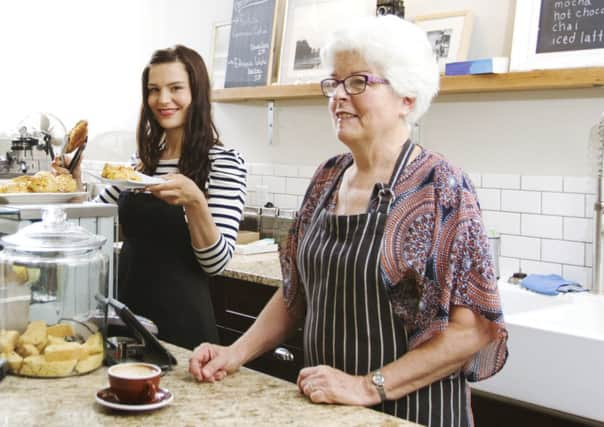‘Pre-tirement’ generation won’t call it a day


Now the over-60s are more likely to be doing voluntary work, taking part in an exercise class, studying a foreign language or holding down a responsible job as retirement becomes “pre-tirement” for those eligible to take a state pension.
Going part-time, changing jobs or delaying retirement plans are some of the norms of the modern “pre-tirement” landscape, according to a study into those due to hit pensionable age in the next 12 months.
Advertisement
Hide AdAdvertisement
Hide AdMore than a fifth say they do not feel ready to stop working, while almost a quarter have chosen to delay their plans.
While just over half want to work to improve their finances, other reasons for working beyond state retirement age include simply enjoying work. A third do not like the idea of being at home all the time and 23 per cent claim they would miss having a daily routine.
Stan Russell, a retirement income expert at Prudential, said: “The ‘Class of 2015’ are approaching their later years determined to improve their health, acquire new skills and enjoy themselves.
“The old image of everyone giving up work aged 60 or 65 and becoming a pensioner is a thing of the past. People are seeing the opportunity to stay at work full-time or in a period of ‘pre-tirement’ as an attractive one – whether it’s to boost their pension pots or just to stay fit, healthy and stimulated.”
Reducing the hours they work is the preferred option for 31 per cent of this year’s retirees who would consider continuing to work, with many planning to fill their spare time with voluntary work, further study or social classes.
Three in ten say they will enrol in a course or formal education, while 29 per cent plan to undertake voluntary work. Over a quarter say they will also join a club or activity group.
An Age Scotland spokesman said: “For many older people, the most important thing is to be able to make choices with their work that allow them to be flexible around their own unique situation. For many over-65s, they will be taking on grandparent duties and part-time or flexible working will allow them to help their family without the need to give up work completely.
“It’s also really important to remember this can be a great support to employers. The experience older workers have built up over a lifetime can be invaluable and allowing people to reduce their hours can retain experience within an organisation.”
Advertisement
Hide AdAdvertisement
Hide AdMore than a million over-65s continue to work in full- or part-time positions UK-wide, with 3.6 per cent of all employed people aged 65 or older, according to over-50s’ organisation Saga.
Paul Green, for Saga, said: “We need to ensure many more older workers are enabled to continue to work for as long as they choose. Increasing numbers of over-65s want to continue working and more employers are recognising the benefits of having an age-diverse workforce.
“Many employers recognise the great work ethic, experience and life skills older employees offer. And, as well as being good for individuals, having an age diverse workforce is good for the economy.”
CASE STUDY
‘What you do defines you,’ says working pensioner
Patricia Calder, 66, from Glasgow, reached state retirement age six years ago, but works three days a week on a switchboard.
“I reached retirement age before the rules changed, so I could have retired at 60 if I’d wanted to. I just didn’t want to fit the stereotype of the retired person sitting around at home with their feet up.
“Initially, I dropped to four days a week and then a few years later, to three days. In an ideal world, I would like to cut back to two days over the next year or so and fill my time with other things – there is so much out there to do. I do some courses at Glasgow University, exercise classes and a lot of voluntary work. I have volunteered on an Alzheimer’s helpline and did some work for Save the Children. Voluntary work is so enjoyable – it opens up your horizons.
“I have to remember there are some people who consider me old. Some of my friends are terrified of retirement.
“I think what you do defines you and if you meet new people and have to tell them you’re retired, you get a very different response to if you’re working. Hopefully the world is changing in terms of attitudes towards older people. I sometimes feel that a lot of people still get it wrong.”